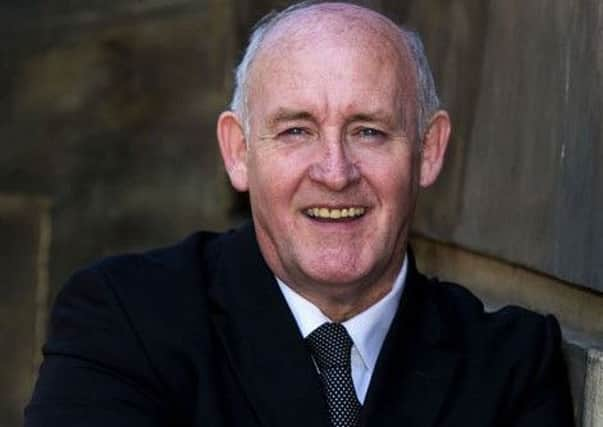Ian Welsh: Working together to bind health and social care


Integration offers a unique opportunity to achieve innovative and transformational change across health and social care, with planning and delivery based upon an admirable set of principles aimed at achieving health and wellbeing outcomes.
Local partnerships have been set up around the country to enable health boards and local authorities to work together, tackle major challenges and improve health, wellbeing and services. People who access services, unpaid carers, the third and independent sectors are all seen as valuable partners in this worthy endeavour.
Advertisement
Hide AdAdvertisement
Hide AdBy April 2018, Integration Authorities will have been operating for around two years. My organisation, the Health and Social Care Alliance Scotland (the ALLIANCE) wanted to mark the occasion by asking members and partners to contribute to our ‘We need to talk about Integration’ anthology.
We think it’s an opportune moment to come together to take stock, assess if we are on the right road to achieving integration’s goals, and collaboratively identify ways to meet and overcome the challenges we face now and in the future.
For many years, we worked intensively alongside our 2,200 members and partners on the legislation that underpins integration, which came into force in 2016; advocating for a rights-based and person centred approach.
Since then, the necessary shift in working practices and culture towards transformation has started to take effect and many examples of good practice are emerging.
However, the picture around the country is uneven and wide-ranging obstacles have been identified across fiscal, planning and operational divides.
Concerns have been expressed that integration may not deliver according to its principles, which threatens achieving the intended outcomes for people.
The contributions to the ALLIANCE anthology represent a wide spectrum of views and encompass perspectives from people who access services and unpaid carers, as well as representatives from academia, the public, third and independent sectors.
Experiences would appear to have been mixed so far. While everyone strongly agrees that the voices of lived experience, communities and the third sector should be central to planning and developments, the feeling is that this is not working as well as it should be.
Advertisement
Hide AdAdvertisement
Hide AdThere are also concerns expressed, for example, about the lack of parity between social care and health, and questions surround the availability of resources to match current and growing demands in the future.
However, there is also optimism about the progress made to date, and integration’s potential for the future. There are untapped opportunities waiting to be explored, for example, working more closely with the social housing sector and greater cross-sectoral approaches with other public policy agendas like social security and fuel poverty.
We are very grateful to our many members and partners for sharing their views with us. The broad range of opinions reflect the very different experiences that individuals and organisations have had of integration across Scotland so far.
You can access the anthology yourself by visiting our website in late May 2018 at www.alliance-scotland.org.uk
One thing is clear, and all our contributors agree: we all want to see integration achieve its vision and to be part of the journey that sees principles put into practice and outcomes achieved.
Ian Welsh OBE, chief executive, Health and Social Care Alliance Scotland (the ALLIANCE).